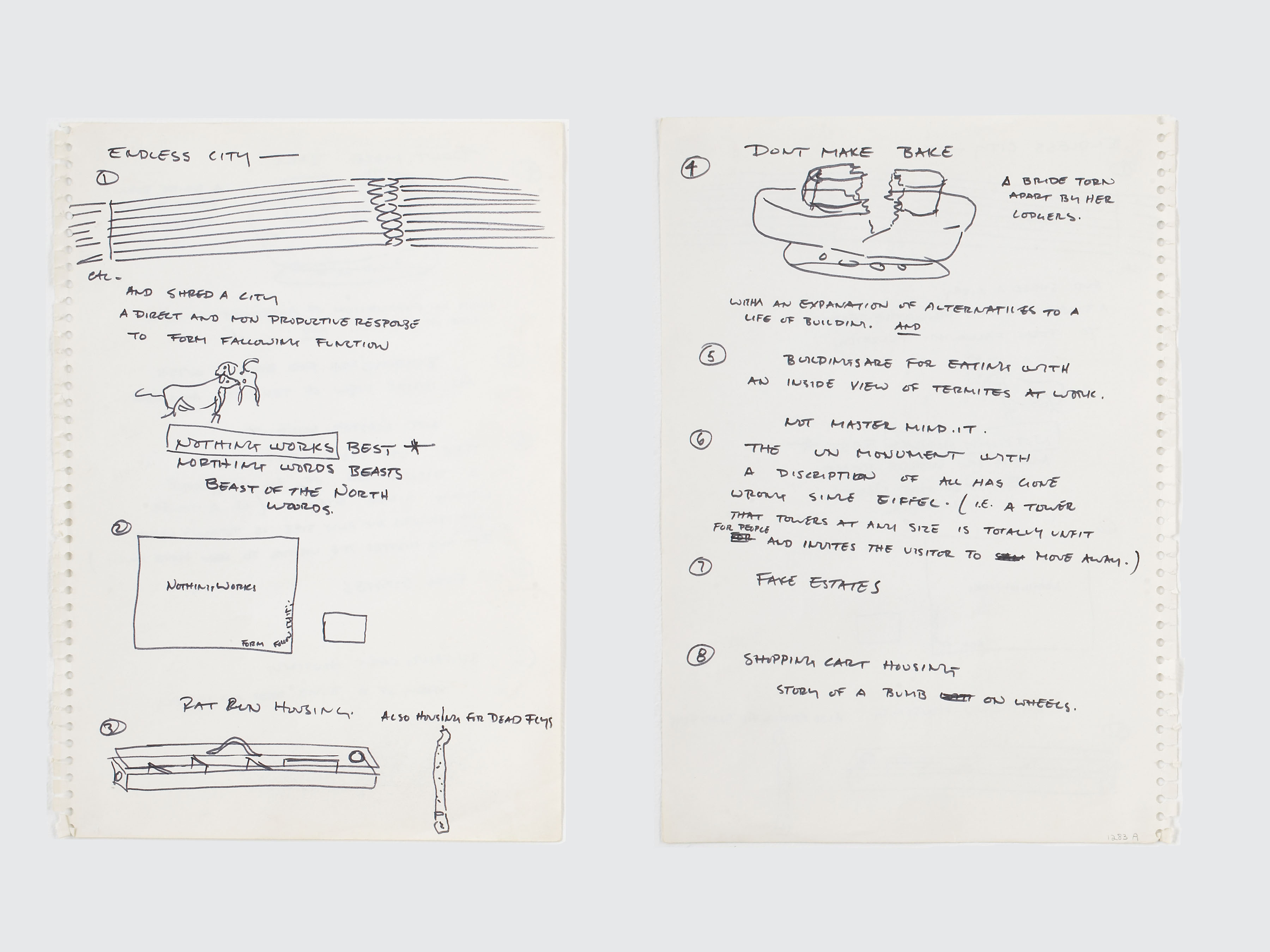Clarion Vol 6: Gordon Matta-Clark & Pope.L: Impossible Failures
Failin’ Good Ebony L. Haynes, Pope.L, and Hamza Walker in Conversation
Excerpt:
For this volume of Clarion, I invited Pope.L and Hamza Walker to participate in a conversation around the liberating potential of failing and of creating an effect with both the material (the body, architecture) and the immaterial (the void, the meeting point of presence and absence). Pope.L mentions over the course of our discussion “the company you keep,” and I am lucky to keep company with these two thinkers. Walker’s work as a curator and writer is particularly relevant in discussing the pairing of Pope.L’s and Gordon Matta-Clark’s work. He looks at whether art “functions critically” in terms of how we live in the present, especially as it relates to space and architecture. In a way, it was an impossible failure to have Matta-Clark’s voice in our conversation, and while texts he wrote in the 1970s follow these pages, I believe his ideas and questions are folded into our conversation to the point where it felt like he was in the room all along.
EBONY L. HAYNES: I wanted to chat with you both about the wonderful show I was privileged
to work on with Pope.L and the aura of Gordon Matta-Clark. When I was thinking about this conversation, I became especially interested in starting with the word “failure.” Failure is a theme, a feeling, in the show, and in early curatorial conversations with Pope.L, we questioned what failure is and what it means to have something fail—the gap between the intention and the end
result, the effect.
POPE.L: I’ve always been a little suspect of that term in the art world because—well, because the people typically involved in the art world come from a culture that is not one of failure. And black people have seemed to be failing for many, many years. Not of their own intention, obviously. I can get ignorance—you don’t know something, or you can’t know something. But failure? It was weird when I first started hearing this term thrown around. Why would anyone be interested in failure? But I realized some people are; they maybe think they are inoculated from failure. I guess I was intimidated by it. It’s something I’ve been avoiding all my life. Why would I want to deal with this shit? I mean, I’m already dealing with this shit. Why would I want to make it into an academic kind of thing? You know what I’m saying?
HAMZA WALKER: A rational pursuit!


Pages 13–14
Gordon Matta-Clark, pages from Endless City,
a proposal for Anarchitecture, 1974